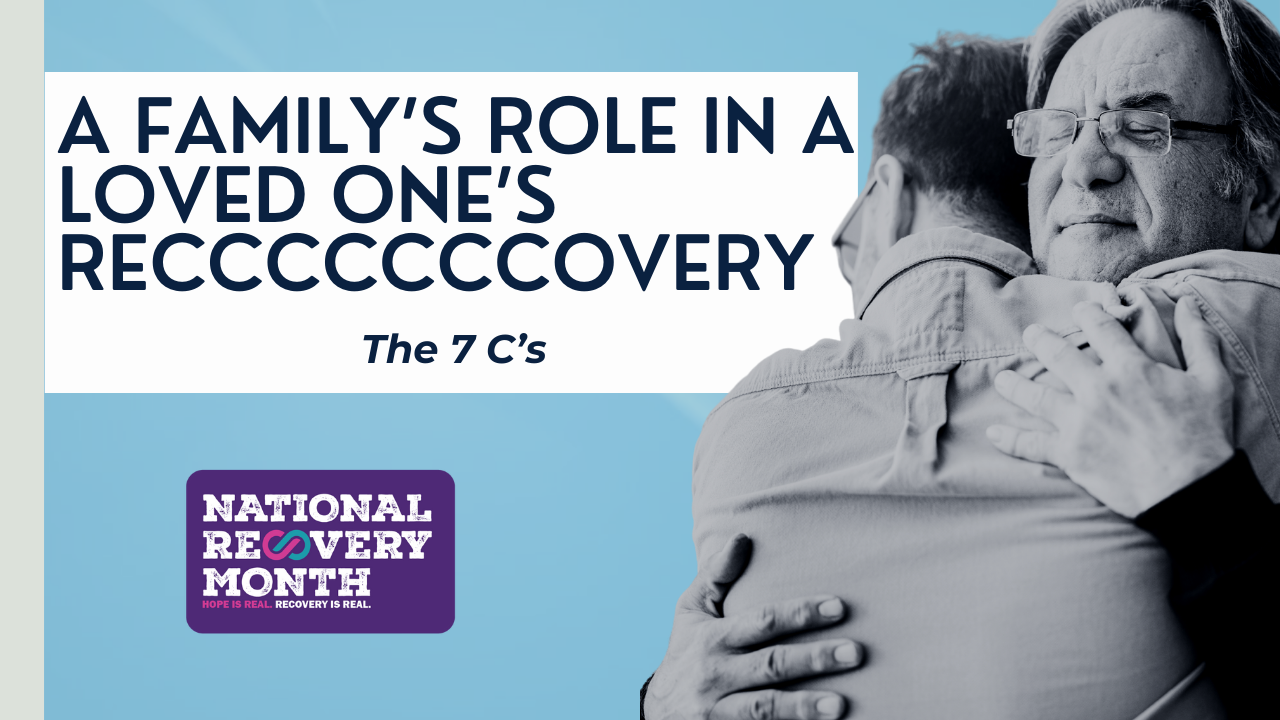Posted on September 25, 2023 View all news
“We do not lead others into the Light by stepping into the darkness with them.”
― Melody Beattie, The Language of Letting Go
When our life has been disrupted by a loved one’s problematic drug use, it can seem like there is no way forward or out of the situation. We want to help them, but at the same time, we also don’t know how we can keep on living with the dysfunction that comes with substance abuse problems, like denial, dishonesty, and drama.
And the worst part of it is, we may find ourselves becoming angry and resenting the person that we love. We may even resent OURSELVES for putting up with so much for so long.
Whether or not our loved ones ever recover, it is still possible to regain a measure of peace, stability, and even joy in our life if we keep in mind these “Seven Cs.”
We Didn’t CAUSE Their Addiction
In the 12-step fellowships, we learn there is nothing that we did – or didn’t do – that caused our loved one’s addiction. Feeling guilty is unproductive and can prevent us from supporting them more positively.
Even if we made mistakes in the past, we are not to blame. No one person can cause another person’s addiction. In fact, science tells us that the main causes of addiction are genetics, social experiences, and psychological factors.
We Can’t CURE Their Addiction
Substance Use Disorder is a relentless disease. There is nothing we can do to change that fact. But there IS good news.
Although there is no cure, addiction can be managed, just like other chronic conditions like high blood pressure and diabetes. Evidence-based treatments and programs are proven to help people heal and maximize their chances of regaining and maintaining long-term recovery.
We Can’t CONTROL Their Addiction
Bargaining, extracting promises, or negotiating with someone whose brain has been hijacked by a disease can be challenging. We might find ourselves yelling, threatening, or bribing the disease instead of talking compassionately to the person.
When we go without sleep and ignore our obligations and needs, we do nothing to help them improve. The only thing we accomplish is increasing our stress and then finding ourselves worn out.
To make a difference, we need to take good care of ourselves by learning all we can about how to respond to a loved one’s addiction appropriately.
We Can CARE for Ourselves
We must see to our needs first – our mental and physical health, finances, obligations, and the rest of our family’s needs. The illness can drag us down if we constantly put our loved one’s needs before our own.
This means setting healthy boundaries and prioritizing ourselves and our family’s health first. This doesn’t mean we don’t love the other person or that we are giving up on them. It only means that we understand that we cannot be there for someone else if we aren’t there for ourselves first.
We Can COMMUNICATE Our Boundaries
Communicating our boundaries honestly, clearly, and kindly with our loved ones will protect us both and allow them to experience the logical consequences of their behaviors. It’s called “detaching with love.” Holding boundaries allows them to be responsible for their actions, and it helps us minimize the damage the disease of addiction can have on our lives. Accountability supports the healing process of recovery.
We Can Make Healthier CHOICES
You might ask, “Why do I need help if they are the ones abusing drugs?”
It’s no secret that dealing with someone else’s addiction can heavily affect our mental health and create dysfunction within the family. Family members often struggle with depression, anxiety, and PTSD.
However, the recovery process improves when families seek help for themselves and do not make their loved ones responsible for their emotions. When a family chooses to work their own recovery program, they recognize any codependent or enabling behaviors sooner and choose healthier, more compassionate responses to their loved one’s drug use. Family dynamics improve when we choose to participate in 12-step fellowships like Mar-Anon and seek professional help.
We Can CELEBRATE Ourselves
We have worth and value as a person. We are NOT defined by what we can or can’t do for our loved ones with substance abuse challenges. In the midst of everything that is going on, take time to meditate, pray, express gratitude, and realize our strengths.
Even when we don’t feel like it, we need to keep up with our hobbies, interests, social life, and special occasions as a family. This is how we prevent addiction from ruling over OUR lives.
Why Does All This Matter?
Besides the obvious – our worth and our health – the healthier we are, the better we can show up for our loved ones, whether they are actively using drugs or recovering. Families Brains Matter, too.
******
Every Brain Matters is a trusted educational resource for individuals and families wanting to stay safe from the harms associated with marijuana and the drug culture.
We reject the false narrative that industrialized marijuana is a harmless expression of personal freedom. Based on the latest scientific evidence and personal stories, our position is that the THC in marijuana is a dangerous and addictive drug. Like all drugs of abuse, it can destroy lives.
You can help spread awareness by sharing this article. To stay even better informed, join our movement and subscribe to our channel.
If you found this information valuable, consider making a tax-deductible donation to Every Brain Matters.
Written by Every Brain Matters Editorial Staff
Aubree Adams, Director of Every Brain Matters
Bart Bright, Every Brain Matters family and recovery advisor
Nancy Yates, Every Brain Matters family and recovery advisor

